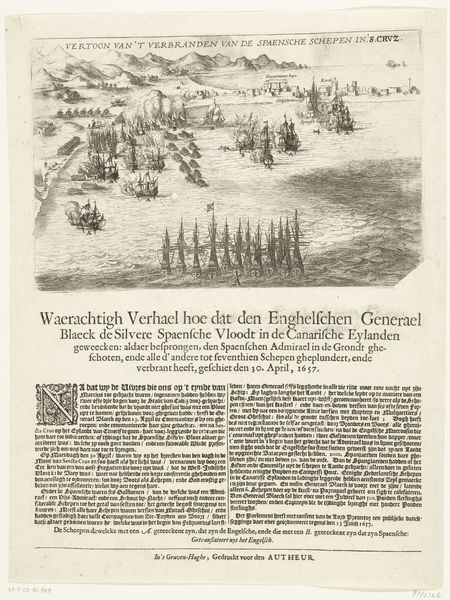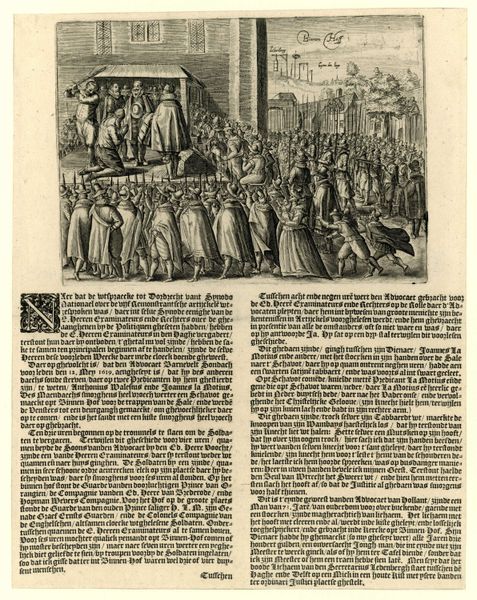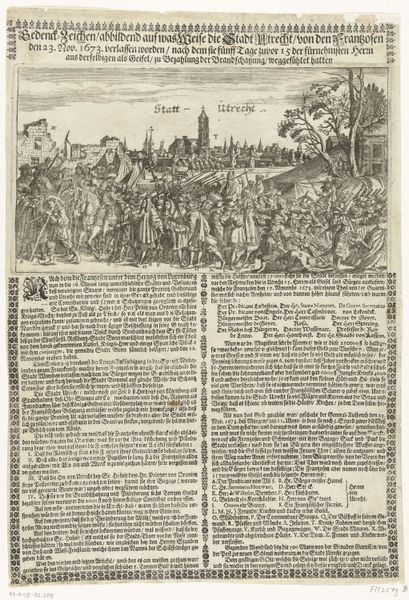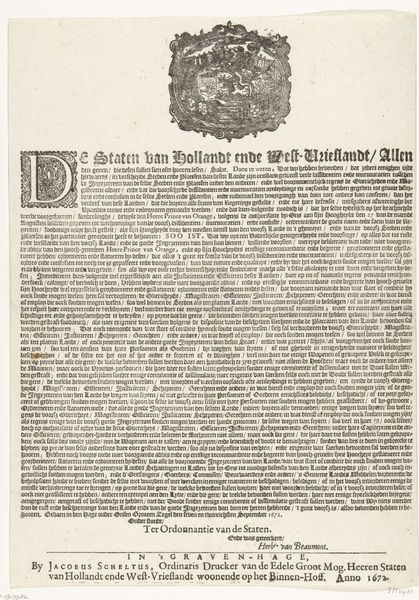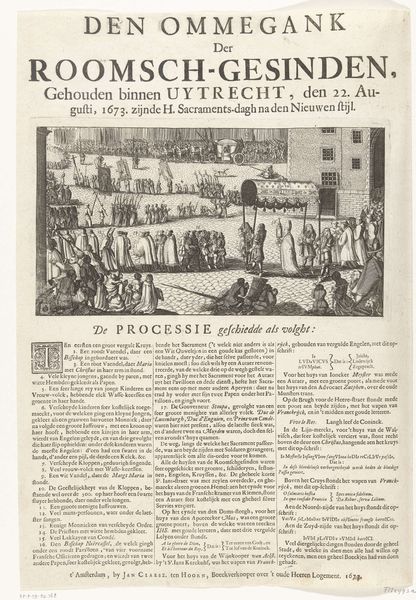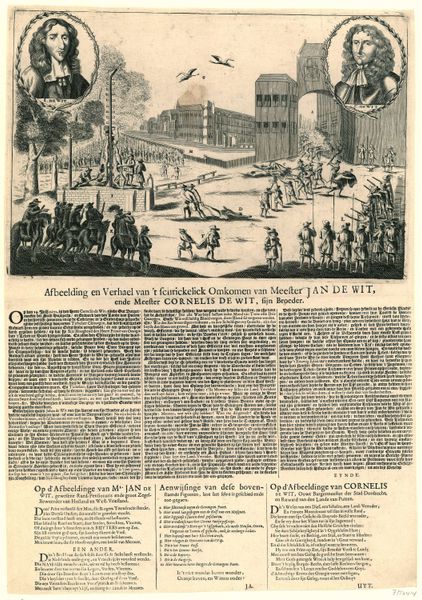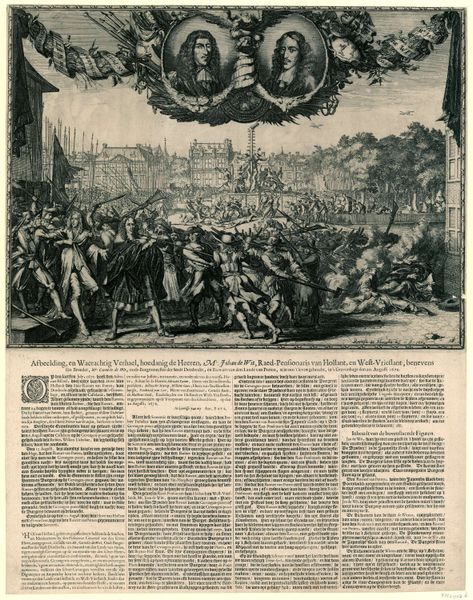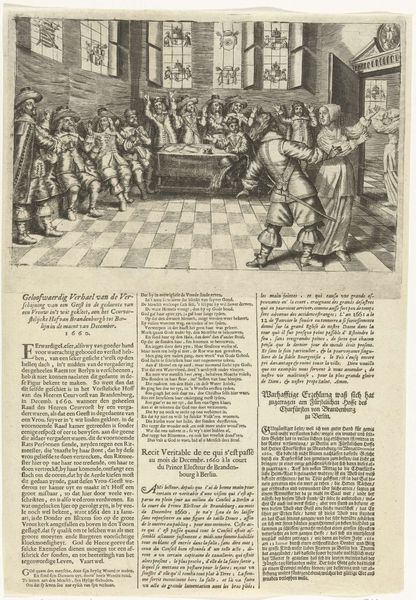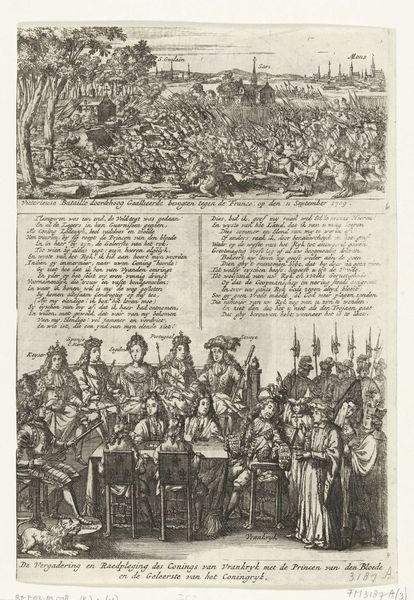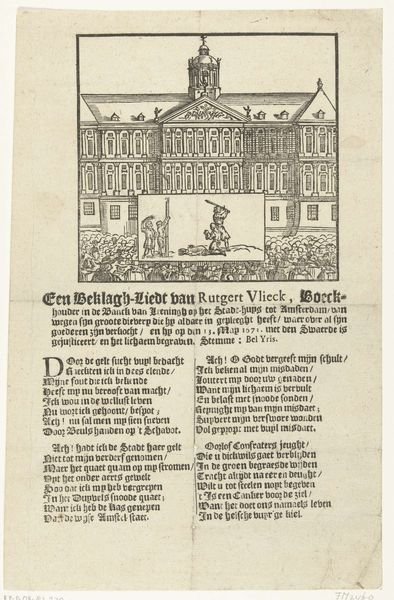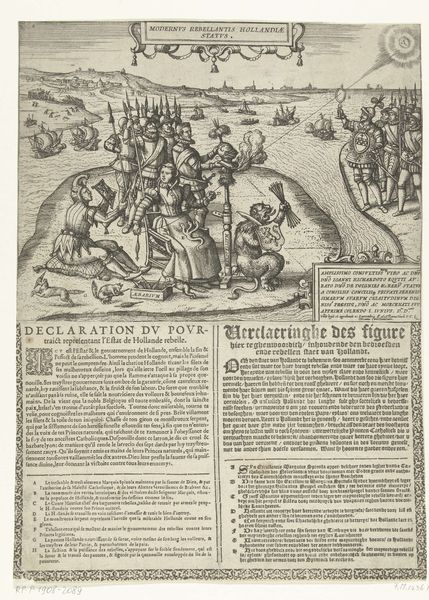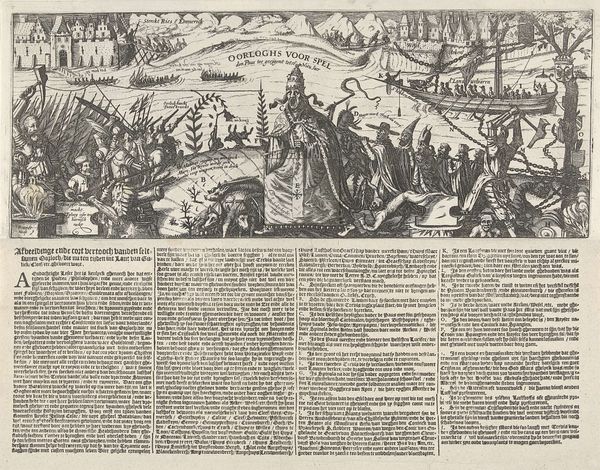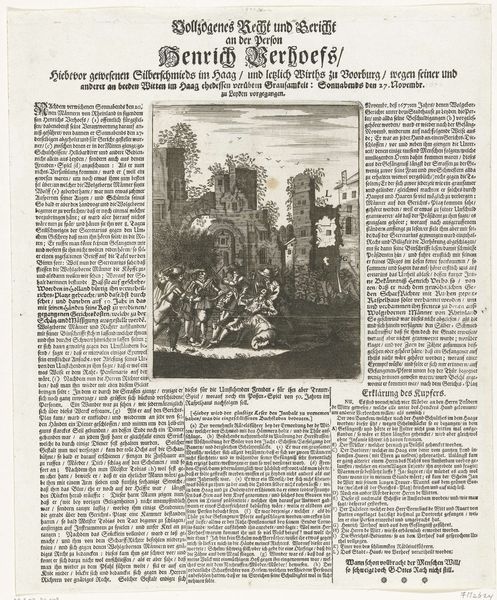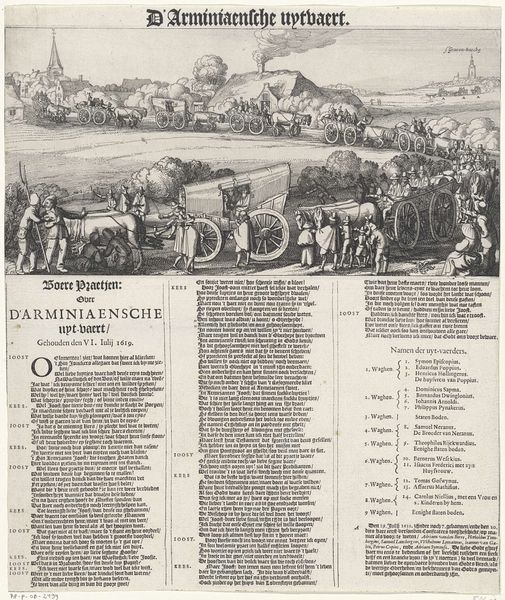
Executie van Reinier van Oldenbarnevelt, David Coorenwinder en Adriaan van Dijk, 1623 1623
0:00
0:00
dirkeversenlons
Rijksmuseum
print, paper, engraving
#
aged paper
#
dutch-golden-age
# print
#
old engraving style
#
traditional media
#
paper
#
pen work
#
cityscape
#
history-painting
#
engraving
#
realism
Dimensions: height 368 mm, width 270 mm
Copyright: Rijks Museum: Open Domain
This etching by Dirk Eversen Lons, made in 1623, captures the execution of Reinier van Oldenbarnevelt and his accomplices. Notice the crowd, a sea of faces uniformly cloaked, all fixated on the central stage where justice is enacted. The execution scene itself is a potent symbol, echoing similar spectacles of public punishment found throughout history. Consider the Roman crucifixions or the medieval beheadings, where the body becomes a political stage, a canvas upon which state power is visibly displayed. The attire of the crowd conceals individuality, yet their collective presence amplifies the event’s gravity. This faceless mass mirrors the psychological phenomenon of group identity, where individual consciousness is subsumed by the collective will. The executioner's axe, a recurring motif, has been associated with power and control. Over time, it has taken on new meanings in different contexts, even evolving into a symbol of revolution. The intense emotional states conveyed here – fear, morbid fascination, and perhaps even a sense of catharsis – engage viewers on a deep, subconscious level. This cycle continues, echoing through the ages, as these symbols resurface, evolve, and take on new meanings.
Comments
No comments
Be the first to comment and join the conversation on the ultimate creative platform.
